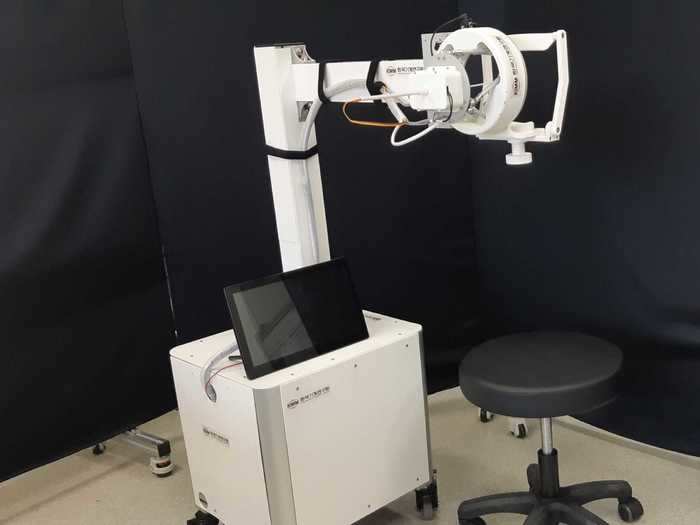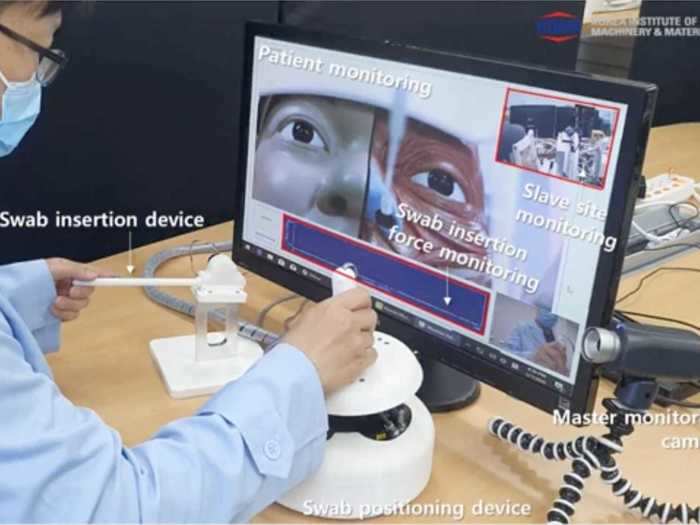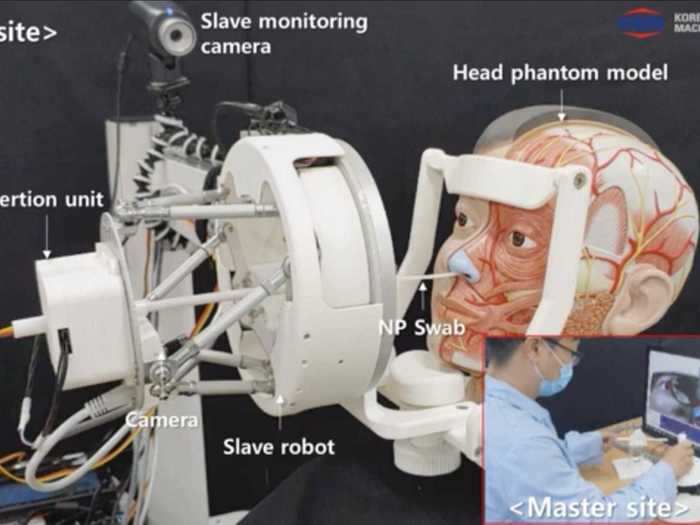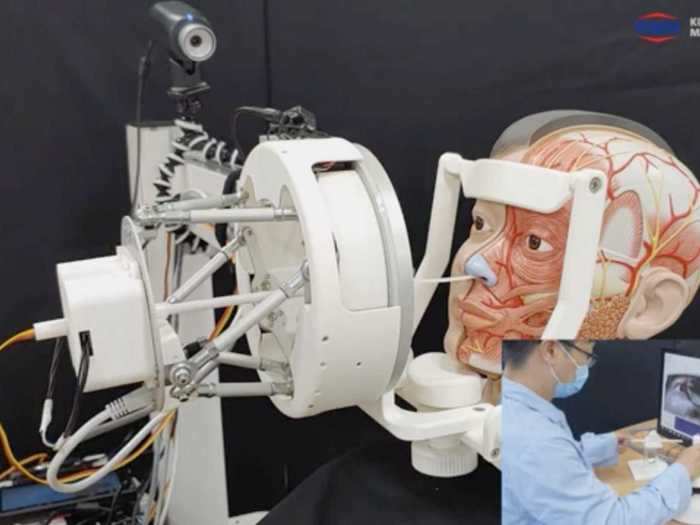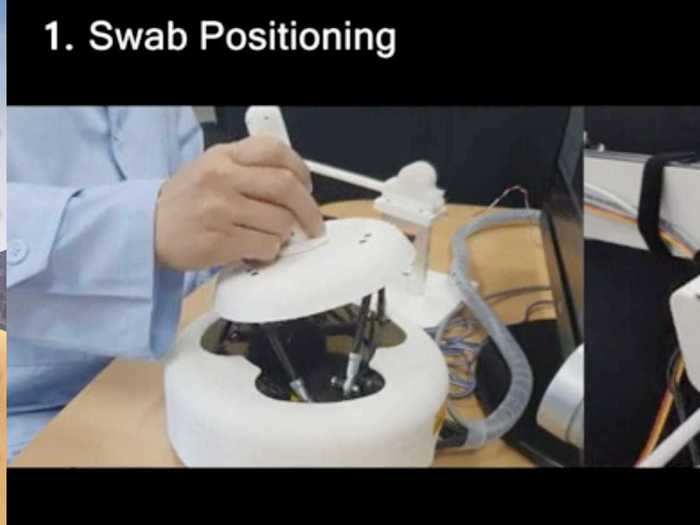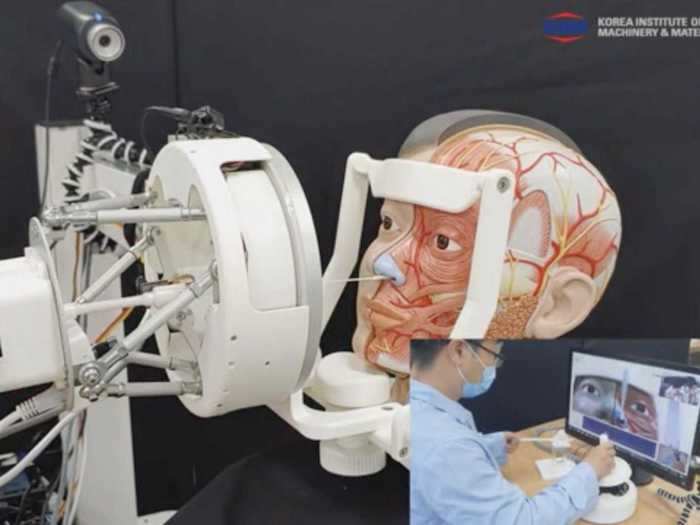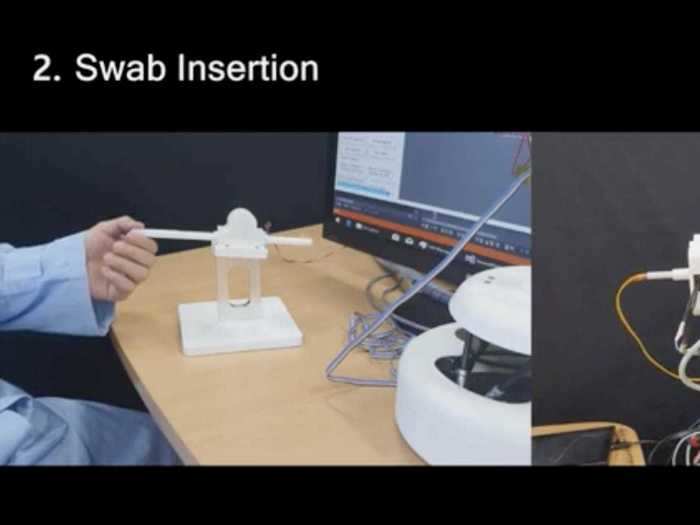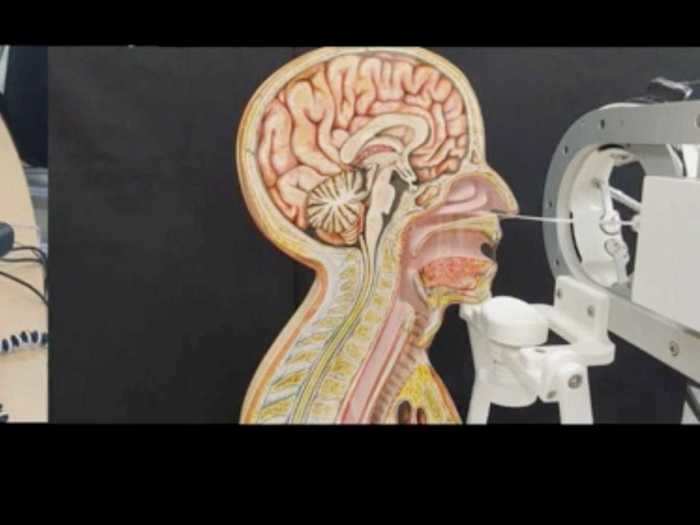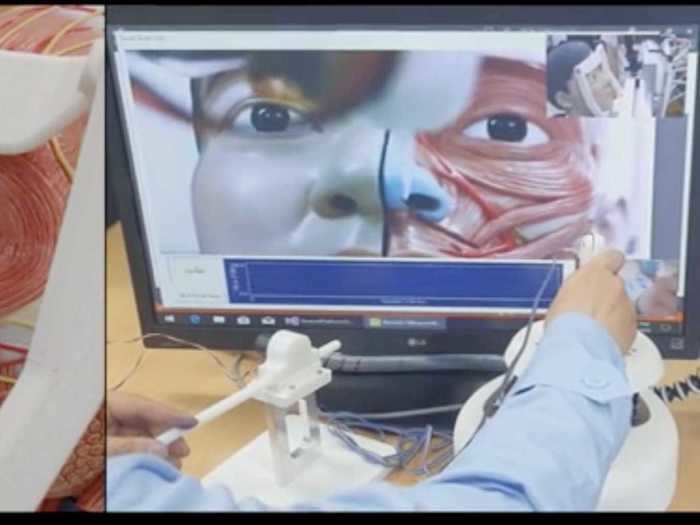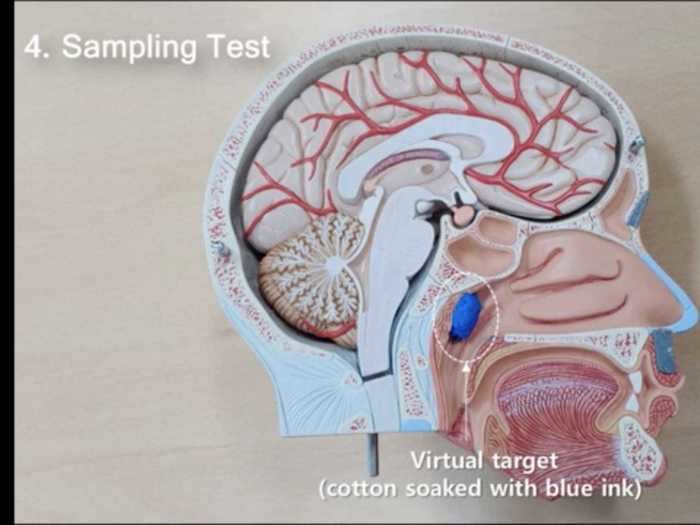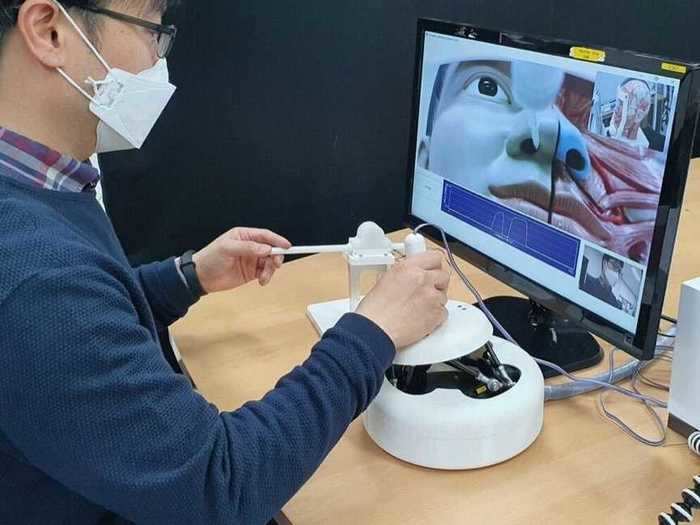Doctors in Korea invented a remote-controlled robot that enables contactless collection of COVID-19 test samples — here's how it works
Mary Meisenzahl
- A team at the Korea Institute of Machinery and Materials developed a robot to collect samples for COVID-19 testing.
- The robot is remotely controlled by a healthcare provider, reducing the risk of transmission between patient and provider.
- Robots have been used in fighting the coronavirus around the world.
A remote-controlled robot sticking a swab deep into the nose to collect a sample is one of the latest developments to fight COVID-19.
Doctors and researchers at The Korea Institute of Machinery and Materials (KIMM) developed a robot that can be controlled by medical personnel from another room to take samples needed to test for the coronavirus. The team, led by Dr. Joonho Seo and Professor Nam-Hee Kim of Dongguk University College of Medicine, created the robot to swab the upper airways of people with COVID-19 symptoms.
The system is based on parallel robots, where controls by a doctor in one room tell the swabbing robot in the other room what action to take. Doctor and patient are also connected by audio and video, so they can communicate. The researchers expect this robot will reduce the risk of transmission for medical providers, who have to get very close to people who potentially have infectious diseases. Professor Nam-Hee Kim also noted that the robot could reduce the need for personal protective equipment because providers don't need to interact as closely with patients.
Robots have increasingly been put to use since COVID-19 spread around the world. In Boston, Spot robots were used to screen patients remotely, using iPads so doctors could talk to and visually assess them. In India and other countries, robots have been tasked with screening patients using thermal temperature guns, picking out people with fevers as potential COVID-19 patients.
The KIMM robot could potentially be the most useful yet, because it doesn't rely on symptoms but actually gives doctors the ability to remotely test people. Here's how it works.
READ MORE ARTICLES ON
Popular Right Now
Popular Keywords
- India’s wearables market decline
- Vivo V40 Pro vs OnePlus 12R
- Nothing Phone (2a) Plus vs OnePlus Nord 4
- Upcoming smartphones launching in August
- Nothing Phone (2a) review
- Current Location in Google
- Hide Whatsapp Messages
- Phone is hacked or not
- Whatsapp Deleted Messages
- Download photos from Whatsapp
- Instagram Messages
- How to lock facebook profile
- Android 14
- Unfollowed on Instagram
Advertisement

